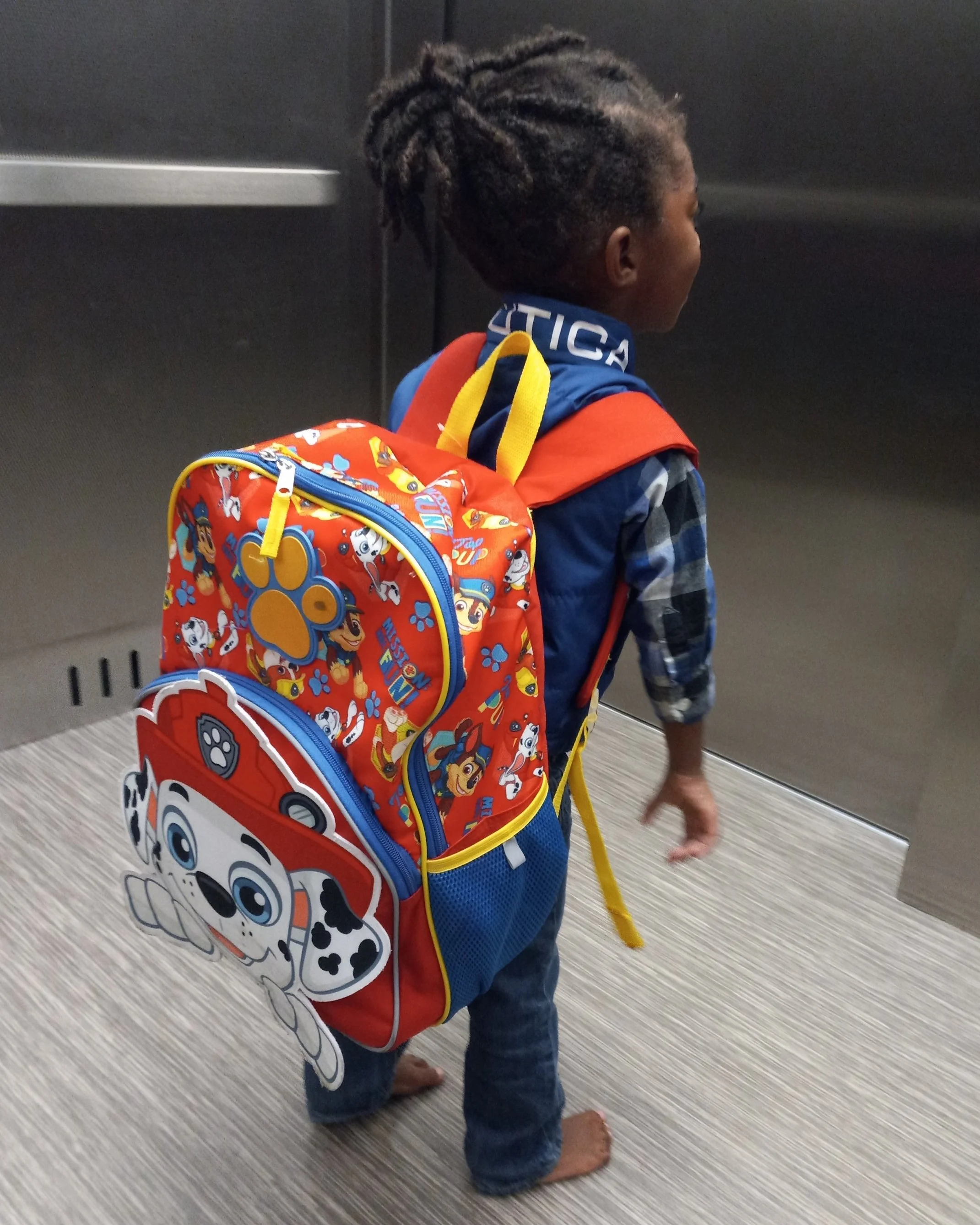Autism On The Go
My four-year-old autistic son and I are no strangers to being on the go. From traveling locally for weekly therapy visits, to long-distance trips to see specialists and fun outings to our favorite destinations, we walk, bike, stroller, wagon, and even skateboard around our community and beyond.
When traveling with a loved one who has Autism Spectrum Disorder (ASD), it's important to be prepared. In this guide I'll share tips and resources to help you travel with your loved one—down the block or across the country.
Know Before You Go
Before traveling, spend time researching your destination. Contact the place you're visiting by phone or email at least a week in advance to inquire about accommodations (adjustments)they can make for people with disabilities. You can also check their website for information about their accessibility policy.
Here are some possible accommodations to ask about:
Companion Policy
Some venues offer complimentary tickets to caregivers or personal attendants accompanying a disabled person. To obtain a complimentary ticket you may need to show an identification card or a written statement from a medical provider to demonstrate that your presence is necessary.
Discounts
Some venues have special rates for families receiving EBT/SNAP or Medicaid benefits. Organizations like A Kid Again offer FREE local events and activities to families impacted by disabilities, and many local libraries offer passes or kits available for checkout to visit venues in your area for free. You never know unless you ask!
Sensory
Inquire about sensory-friendly hours, sensory kits/bags, and a sensory breakroom if you have sensory concerns. The nonprofit organization KultureCity partners with other organizations to promote sensory inclusion through their FREE sensory bags and communication app.
Restrooms
Ask about automations in the restroom. If the toilets are automated, bring a pack sticky notes to cover the toilet sensors to help avoid sensory overload in the bathroom.
Ask if adult changing tables are available in a public place, or if there is a private place in the building where you can change an adult or larger child if needed. Use this site to help locate an adult changing table near your destination.
Safety
If you will be staying in a hotel consider making some of the following requests:
Ask for a room that is across the hall from or next to friends or family so that you can quickly access their help if needed.
Ask for a room that is far away from automated doors and elevators if you have concerns about your child wandering off. The Big Red Safety Box has additional resources.
Consider which floor is the best for your family's needs and ask for a room to match. The first floor may be helpful for ease of entering and exiting the hotel, while staying on the highest floor may help minimize the noise.
Dietary, Medical, and Transportation Support
If your loved one has special dietary needs, be sure to review online menus and contact the establishment in advance to discuss concerns. I always travel with a small bag of provisions in case we are caught between meals or at an establishment with limited offerings to accommodate my son’s special diet.
If your loved one requires time-sensitive or emergency medication, inquire about medical bag policies.
Keep a list of doctors and emergency contacts, action plans, medical ID/autism awareness cards, and other medical accessories with you at all times. Visit IfINeedHelp.org for resources to help you assemble these items.
Ask about policies on transporting devices like strollers, wagons, or wheelchairs if these are a medical necessity for your family. It is important to know what is required and what is allowed in each venue you visit. Learn more about accessing pediatric medical devices that can support your travels from Baby’s on Broadway.
Caring for the Caregiver on the Go
As a special needs parent, I've learned that I need to take care of myself as well as my child. I now take a support bag with me when I travel. Here are some musts to include in your personal support bag.
Hydration. Staying hydrated is essential. I prefer ice-cold lemon water or sparkling water.
Snacks. Keep hunger at bay with grab-and-go snacks such as jerky, roasted nuts or chickpeas, travel-friendly produce, protein bars, and tuna/chicken packs.
Leisure activities. Pass the time and minimize daily stressors with a book/magazine, word or number puzzle, fidget toys, or by journaling, knitting, or crocheting.
Headphones. They’re good for phone calls with providers, music playlists, and podcasts.
Written By: Itarah Godbolt
Itarah is Special Needs Parent/Autism Advocate as well as a Parent Representative for Trumbull County’s Family and Children First Council. Read more about Itarah & LJ here.





